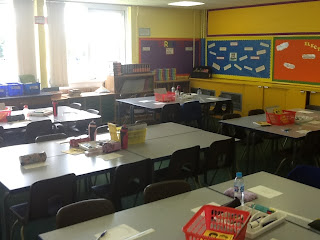 |
| You see that railing, there. That's the path to get to uni. Such larks... |
But yes, my immersion into teacherdom is well under way, the fact that my diagnostic teaching practice starts on Monday serving as testament to that. So much has changed in the last two weeks that I'm not actually sure upon which rung I stand on the ladder to gaining QTS. I had entered the course with a certain amount of knowledge that I had hoped would stand me in good stead for my training. Much of that is now having to be unlearned at an alarming rate, as many of the things I thought I knew about (Aims, Objectives, Outcomes, Success Criteria and the like) are now being explained differently, and apparently what I've spent the last year learning to do isn't actually what you're supposed to do. Terrifying, right?! You're not kidding it is! So apart from the fact that I feel an ineptness on a scale similar those guys in the viagra adverts, I have to spend three days a week as a professional, and two days a week as a student which, you may be unsurprised to learn, is causing information overload. I usually spend the remaining two days of the week in a vegetative state trying to recover from the aforementioned chaos.
One of scariest things I've learned this week is that the new Teacher's Standards are basically a chronic pain in the bum. Not only are all the standards new this year, but they are standards that I have to carry with me into my career, rather than ones that I need to demonstrate in order to be recommended for QTS. The sheer amount of work I need to do is mind-blowing, not to mention the new-fangled 'digital portfolio' I now need to construct and maintain to collect my evidence. The ambiguity that surrounds the whole process of the PGCE is, for me, the single most off-putting factor in ITE. I think the best way I can deal with this right now is by not dealing with it. There are so many other things I need to do simultaneously that this has to take a back seat for at least the next week until I settle into my placement. Thankfully that shouldn't be too arduous a task, as being assigned to the Joseph Swan Academy couldn't have been a more perfect school in which to start my training. Rumour has it that if I bring a mix of positivity and cake along with me, I'm practically half way to meeting these new standards...
Despite the voluptuous inner-thigh wobble I've suffered this week as I debated if this new world of teaching was really for me, one lecture proved beyond all doubt that this is where I belong. Abused and neglected children isn't usually something that inspires people, but listening to a lady talk for three hours about the horrific problems children from these backgrounds can have, I knew instantly that teaching was where I should be. The idea that through merely doing my job well I can offer these children and young people a space in which they can feel safe, valued and respected is something I will carry with me forever. If it means that I have to sit and massage a child's hand because they have cramp from having never held a pencil in their life, it'll be worth it. If it means I have to sit for hours teaching a young person how to speak because no-one has ever spoken them at home, it'll be worth it. The reason it'll be worth it is because every teacher has a duty to provide a future for the students they look after, whatever it takes.




